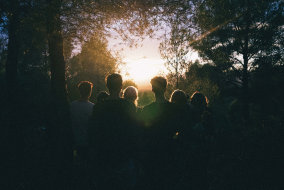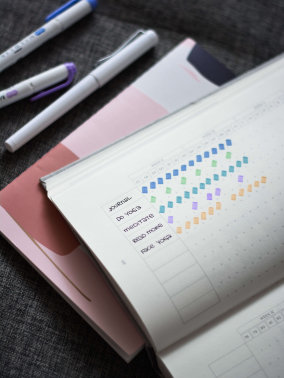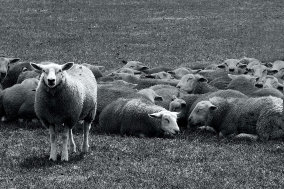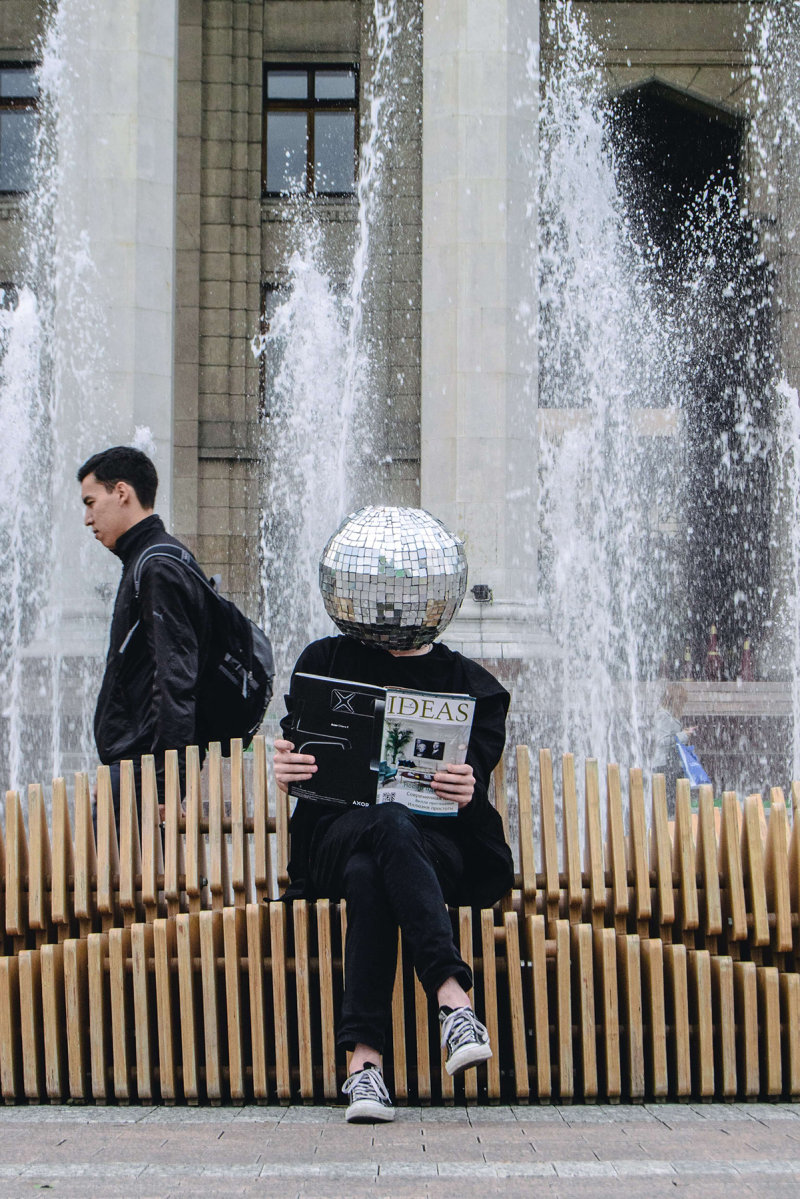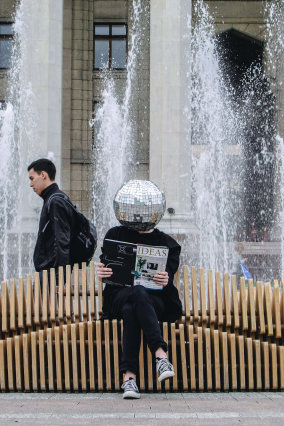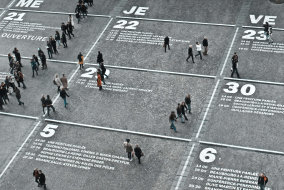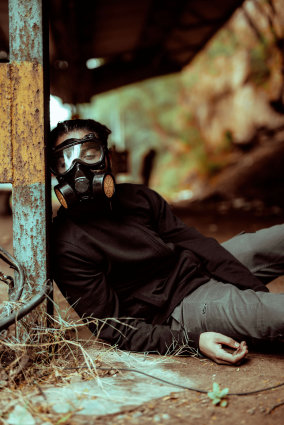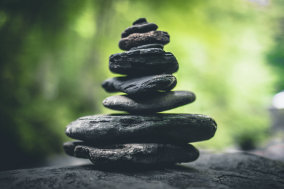Book summary of
When things fall apart
Heart advice for difficult times.
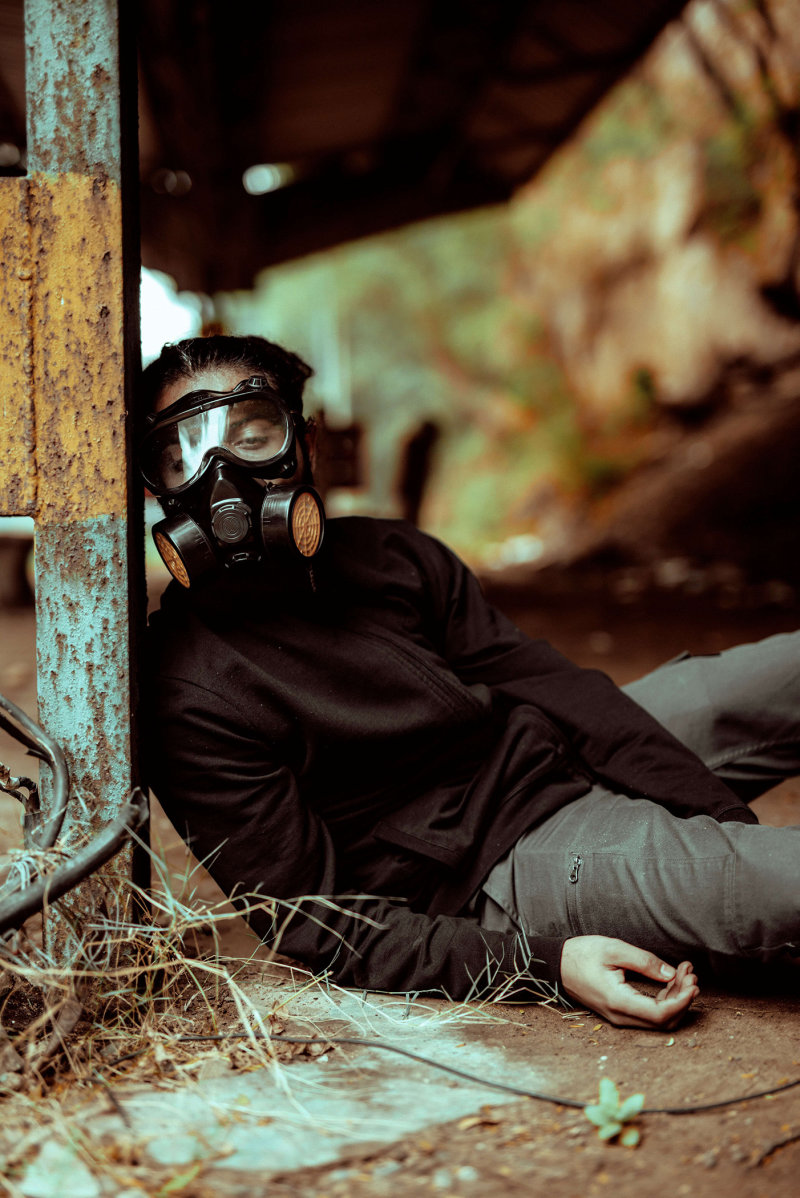
If your life seems chaotic and stressful. If you’re in transition, suffering from loss or fundamentally restless, this book summary is for you!
Become intimate with Fear
We usually freak out when there’s a tiny hint of fear. We remove ourselves from the present moment. We react against our chances of loneliness, death and not having anything to hold on to. Sometimes, however, everything falls apart and we run out of options for escape.
Fear is a natural reaction to moving closer to the truth.
If we commit to staying right where we are, our experiences become very vivid. We cannot be in the present and run our storylines at the same time. Impermanence becomes clear in the present moment; so do compassion, wonder, courage, and also fear! If you’re fully in the present, you’ll experience groundlessness. This is when you get a deeper understanding of reality and find that the present moment is a pretty vulnerable place, and completely tender at the same time. We need to become familiar with fear, look right in the eye, not as a way to solve problems, but to undo old ways for seeing, hearing, smelling, tasting and thinking. Next time you encounter fear, consider yourself lucky. Usually, we think that brave people have no fear. The truth is that they’re intimate with fear. We should lean toward the discomfort of life and see it clearly rather than protect ourselves from it.
When things are shaky and nothing is working, you realize that it’s a very vulnerable and tender place. You can either shut down and feel resentful or touch on that throbbing quality of groundlessness. When you experience a sense of loss—loss of loved ones, of your youth, of your life, you’ll realize how every moment is so precious and how every person in your life is so precious to you. How your whole life means so much.
Accept the reality of life
When things fall apart, we think that the point is to overcome the problem, but the truth is that things don’t really get solved. They come together and they fall apart, again and again. The healing comes from letting there be room for all of this to happen: room for grief, for relief, for misery, and for joy. Letting there be room for the reality that we don’t really know: things falling apart might be just the beginning of a great adventure. We call something bad; we call it good. But really we just don’t know.
Suffering is inevitable for human beings as longs as we believe that things last. Things are always in transition. Sticking with that uncertainty, knowing how to relax in the midst of chaos, learning not to panic is the only way. When we fearlessly acknowledge impermanence, we begin to get the knack of hopelessness. Without giving up hope that there’s somewhere better to be, that there’s someone better to be, we will never relax where we are or who we are.
Theism makes us convinced that there’s some hand to hold: if we just do the right things, someone will appreciate us and take care of us. We think that there’s always going to be a babysitter available when we need it. Nontheism is relaxing with the ambiguity and uncertainty of the present moment and the total appreciation of impermanence. It is realizing that there’s no babysitter you can count on. You just get a good one, and then he or she is gone. This is the truth and the truth is inconvenient. If you want something to hold on to, your life will be even more inconvenient. When we feel suffering, it doesn’t mean that something is wrong. Suffering is a part of life, and we don’t have to feel it’s happening because we personally made the wrong move.
Seeking security or perfection sets us up for failure because sooner or later, we’re going to have an experience we can’t control: someone we love is going to die, we’re going to find out we have cancer, somebody’s going to spill tomato juice all over our white shirt.
To be fully alive is to be always in no-man’s-land, to experience each moment as completely new and fresh. To live is to be willing to die, over and over again.
Get rid of hope and fear
Hope and fear is one feeling with two sides. As long as there’s one, there’s always the other. In the world of hope and fear, we always have to change the channel, change the temperature, change the music, because something is getting restless and is beginning to hurt. We keep looking for alternatives. We feel that we lack something. We can’t simply relax with ourselves.
We hold on to hope and it robs us of the present moment. We feel that someone else knows what’s going on, but it’s missing in us, and therefore something is lacking in the world. We could rather acknowledge that right now we feel like a piece of shit. That’s the compassionate and brave thing to do. We could smell that piece of shit and feel its color, texture, and shape. We can drop the fundamental hope that there is a better “me” who will one day emerge. That our experience could be different. We could stop using liquor and sex as ways to escape and distract ourselves. We shall renounce the hope that we could be saved from being who we are.
We can start by noticing what happens when you begin to feel uneasy. Notice the panic when you grab for something. That grabbing is based on hope, not grabbing is hopelessness. Begin the journey without hope of getting ground under your feet.
All of our anxiety and dissatisfaction is rooted in our fear of death. We’re raised to fear death and hide from it, but we experience it all the time. We experience it in the form of disappointment, in the form of things not working out. When our marriage isn’t working or our job isn’t coming together. When the day ends. Having a relationship with death in everyday life means that we begin to be able to wait and relax with insecurity, with panic and embarrassment. As years go on, we don’t call the babysitter quite so fast.
We don’t see getting old, getting sick or losing what we love as natural occurrences. We want to ward off any sense of death, no matter what. Instead, we should use death and hopelessness as motivation for living an insightful and compassionate life. Giving up hope encourages us to be friends with ourselves and not run away. To return to the bare bones, no matter what’s going on. If we totally experience hopelessness, we can have a joyful and honest relationship with our lives. One that no longer ignores the reality of impermanence and death.
Learn from it
When things get edgy, we can ask ourselves, “Am I going to practice peace, or am I going to war?” Right now, in the very instant of groundlessness, is the seed of taking care of those who need our care and of discovering our goodness.
Feelings like disappointment, embarrassment, irritation, resentment, anger, jealousy and fear are not bad news. They are actually very clear moments that teach us where it is that we’re holding back. They show us exactly where we’re stuck. It’s as if you just looked at yourself in the mirror and saw a gorilla. You try to angle the mirror so you will look a little better, but no matter what you do, you still look like a gorilla. That’s being nailed by life. Most of us don’t take these situations as teachings. We run like crazy. There are so many ways to entertain us away from the moment so we don’t have to feel the full impact of the pain.
Meditate
Meditation is the way to notice when we reach our limit and to not get carried away by hope and fear. Through meditation, we’re able to see clearly what going on with our thoughts and emotions, and we can also let them go. We’re able to see how we run and keep ourselves busy so that we never let our hearts be penetrated.
We don’t sit in meditation to become good meditators. We meditate to become more awake in our lives. Even when we run away and indulge, we see what we’re doing clearly. We should acknowledge whatever arises without judgment, let those thoughts simple dissolve and go back to the present moment. A popular way to meditate is to focus on your ordinary breath, and when a thought arrives, say to yourself “thinking,” and without making it a big deal, simply go back to the sensation of breathing. Acknowledge your thoughts with unconditional friendliness again and again, and label them as “thinking” again and again. The point isn’t to try to get rid of thoughts, but rather to see their true nature. After a while, that becomes how we relate with hope and fear in our daily lives. We stop struggling and relax. We stop talking to ourselves and come back to the present moment.
We’re not trying to achieve a special state or transcend the sound and movement of ordinary life. Rather, we’re encouraged to relax with our environment and appreciate the world around us and ordinary life.
Be kind to yourself
People who give themselves hard times have one thing in common. They have no loving-kindness for themselves. The most difficult times for many of us are the ones we give ourselves. Practicing loving-kindness starts with realizing that what occurs is neither the beginning nor the end. It’s just ordinary experience that happens every day to people from the beginning of time. We can learn to meet whatever arises with curiosity and not make it a big deal. Instead of struggling against confusion, we could meet it and relax.
When we’re uncomfortable, we do the big escape: we act out, say something, slam a door or hit someone. We are so caught in running that we forget to take advantage of the beauty around us and rob ourselves of joy. Instead of protesting and complaining, we can smell that someone is baking bread, hear a child crying, feel the coolness of the air. The way to dissolve our resistance to life is to meet it face to face. When we feel resentment because the room is too hot, we could feel the heaviness of the heat. If it’s too cold we could feel its iciness and bite. Cutting our expectations for a cure is a gift we can give ourselves.
Don’t cause harm
Not causing harm doesn’t only include not killing, robbing or lying to people. It also includes not being aggressive with our actions, speech and our minds. Nonaggression towards ourselves and others has real healing power. It’s painful to face how we harm others. When we’re committed to staying awake and being mindful, we see our desires and our aggression, our jealousy and ignorance. Refraining from acting out impulsively has something to do with giving up entertainment mentality. Through refraining, we see that there’s something between the arising of the craving, or the aggression or loneliness, and whatever action we take as a result. There is something there in us that we don’t want to experience, and we never experience it because we’re so quick to act. Because of mindfulness, we see things when they arise. Because of our understanding, we don’t buy into the chain reaction that makes things expand from being tiny into World War III. When we’ve seen ourselves completely, there’s a stillness of body that’s like a mountain. We no longer get jumpy and have to scratch our noses, punch somebody or drink ourselves into oblivion. A good relationship with ourselves results in being still. We stop being compulsive and we don’t overwork, overeat, over seduce or over smoke. We begin to stop causing harm.
Avoid the 8 dharmas
| What we like | What we avoid |
|---|---|
| Pleasure | Pain |
| Praise | Criticism |
| Fame | Disgrace |
| Getting what we want | Losing what we have |
If we look at our mood swings, we’ll notice that something always sets them off. How do we react to what occurs? Are we hooked by these eight dharmas? In meditation, we can notice how emotions and moods are connected with having lost or gained something, praised or blamed, etc.. A simple thought quickly turns into pleasure and pain. We’re like children who build a sandcastle and embellish it with beautiful shells and colored glass. We want to protect our castle and attack if others hurt it. Yet, despite our attachment, we know that the tide will come in and sweep the castle away. The trick is to enjoy it fully but without clinging, and when the time comes, let it dissolve back into the sea.
Be the cool lonely
We can rest and begin to have a good relationship with loneliness. These are ways in which we can turn it into cool loneliness:
- Less desire: It is the willingness to be lonely without resolution. After we practice less desire consistently, we feel less seduced and we could sit with ourselves a little bit more without restlessness.
- Contentment: When we have nothing, we have nothing to lose. We give up believing that escaping loneliness is going to bring any lasting happiness.
- Avoiding unnecessary activities: When we get lonely, our minds go wild trying to come up with companions to save us from despair. Could we just settle down and stop trying to escape from being alone with ourselves?
- Complete discipline means that we’re willing to come back to the present moment. We could realize how things really are. We are fundamentally alone, and there is nothing anywhere to hold on to.
- Not escaping from our thoughts: We can accept our internal chatter and label it “thinking.” Cool loneliness allows us to look honestly and without aggression. We drop the ideals and look with compassion and humor at who we are.
Be curious about existence
There are three truths about existence: impermanence, suffering, and egolessness. There is nothing wrong with these truths; They can be celebrated.
Impermanence is the essence of everything. Babies become children, then teenagers, then adults, then old people, then drop dead. We meet people and leave them. Fall in love and out of love. We regard this as pain and try to resist it by making things that will last forever. Somehow, in the process of denying that things always change, we lose our sense of the sacredness of life.
Our suffering is based so much on our fear of impermanence. We can’t have pleasure without pain. They are inseparable. Birth is painful and delightful. And death is too. Everything that ends is the beginning of something else. Inspiration and wretchedness complement each other. Feeling inspired cheers us up and makes us realize how wonderful our world is. Feeling wretched humbles us; without it we become arrogant.
Ego covers up our experience of just being here, just fully being where we are so that we can relate with the immediacy of our experience.
Mindfulness is when we recognize impermanence and suffering, and recognize our reactions to them.
Recognize your opinions
We have a lot of opinions and we tend to take them as truth. But they aren’t, they’re just our opinions. Just as in meditation, we label thoughts “thinking,” we should begin to notice our opinions and label them as opinions.
We can begin to realize how solid we make things and how we get into a war because we want our opinions to win and someone else’s to lose. The way to stop the war is to stop hating the enemy. It starts with seeing our opinions as simply our take on reality, and not make them a reason to increase the negativity on the planet.
No matter how well documented or noble our case is, it won’t be helped by our feelings of aggression. If we’re working for reform, we do our job and we care. But each day is a new day; we’re not too future-oriented. We’re going in a direction that helps diminish suffering, but we keep our hearts and our minds open.
Open up
Whether we regard what happens to us as an obstacle and an enemy or as a teacher and friend depends on our relationship with ourselves. If we run to the other end of the continent in order to run away from the obstacle, we find the very same problem waiting for us when we arrive. It just keeps returning with new names and forms. It teaches us about where we are separating ourselves from reality. How we are pulling back instead of opening up.
We should ask ourselves how do we deal with every experience. Did we close down or open up? Did we feel resentful and bitter or did we soften? Were we more critical of our world or more generous?
If we can look and see the wildness of emotion, we begin to befriend ourselves, and also all human and living beings. By becoming aware of how we do this silly thing again and again because we want to avoid uncertainty and awkwardness and pain of not knowing. We begin to develop compassion for ourselves and everyone else because we see what happens and how we react when things fall apart.
Without honesty, we don’t progress. We stay in the same vicious cycle. But honesty without kindness makes us feel grim and mean. The reason we don’t open our hearts and minds to other people is that they trigger confusion in us that we don’t feel brave enough to deal with.
To the degree that we look clearly and compassionately at ourselves, we feel confident and fearless about looking into someone else’s eyes. The more we relate to others, the more quickly we discover where we are blocked, where we are unkind, afraid and shut down. This embarrassing reflection in the mirror becomes motivation to soften further and lighten up more.
Widen the circle of compassion
There is nothing more advanced than relating to others. It means not shutting down on that person, and not shutting down on ourselves. We allow ourselves to feel what we feel and not push it away. We accept all parts of ourselves, even the parts we don’t like. “What we reject out there is what we reject in ourselves.” If we find ourselves unworkable and give up on ourselves, we’ll give up on others too. To the degree we have compassion for ourselves, we will also have compassion for others.
We erect a barrier called blame that keeps us from communicating genuinely with others. Rather than own the pain, we scramble to find some comfortable ground. We feel that we have to be right so that we feel good. Instead, we should not cling to our version of right so tightly and be open to the idea that we’re not entirely certain about who’s right and who’s wrong. We could practice seeing, hearing and feeling other people as they really are, instead of rushing around to try to feel secure again by making ourselves or them either right or wrong.
Everything is ambiguous; everything is always changing and shifting, and there are as many different takes on any given situation as there are people involved. Trying to find absolute rights and wrongs is a trick we play on ourselves to feel comfortable. In any situation, instead of reacting suddenly, we could chew it, smell it, look at it, and open ourselves to seeing what’s there.
Be there for others.
Unwise selfish people think only of themselves, and the result is confusion and pain. Wise selfish people know that the best thing they can do for themselves is to be there for others.
We think that by protecting ourselves from the suffering of others, we’re being kind to ourselves. The truth is, we only become more fearful, more hardened and more alienated. We experience ourselves as being separate from the whole.
When we see a woman and her child begging on the street or a man beating his terrified dog, do we turn away because we can’t bear it? Most of us do, but we should encourage ourselves not to run away from the love and grief it arouses in us. Not to be afraid of pain. When we protect ourselves from pain, we imprison the softness of our hearts.
When we’re facing difficulties, rather than beating ourselves up, we can use our personal stuckness to understand what people are up against all over the world. When we feel inadequate and unworthy, we hoard things. We’re so afraid of losing, which is extremely sad. We wish for comfort, but we instead reinforce aversion and the feeling that we are a hopeless case. Real transformations take place when we let go of our attachment, and give away what we think we can’t.
We don’t set out to save the world. We set out to wonder how other people are doing and to reflect on how our actions affect other people’s hearts.
Use the trick of choicelessness
We don’t experience the world fully unless we are willing to give everything away. Not preparing our escape route, not looking for alternatives, not thinking that there is ample time to do things later. If we knew that tonight we were going to go blind, we would take a longing, last real look at every blade of grass and every cloud formation.
Looking for alternatives keeps us from realizing that we’re already in a sacred world. We have to stop thinking that we can go somewhere else. Instead, we could just relax, relax with exhaustion, irritation, delight or whatever. We should have a total commitment to our experience and an unconditional relationship with reality.
The world is always displaying itself, waving and winking, but we’re too self-involved that we miss it. We should see the other person sitting in front of us. Notice how his or her hair sticks up or lies down. Or seeing a bird sitting on a tree. We can notice the sounds of turning a page of a book. Even if we’re alone, our yawns and farts communicate.
The Path Is the Goal
The path is the moment-by-moment evolution of our experience, our thoughts, and our emotions. We can aspire to be kind in this moment, to relax and open our hearts and mind to what is in front of us. Now is the time. When we find ourselves in a mess, we don’t have to feel guilty about it. Instead, we should know that the way we relate to this mess will define whatever happens next. We can make ourselves miserable, or we can make ourselves strong. The amount of effort is the same. Do we relate to our circumstances with bitterness or with openness? It’s our choice in every moment.
